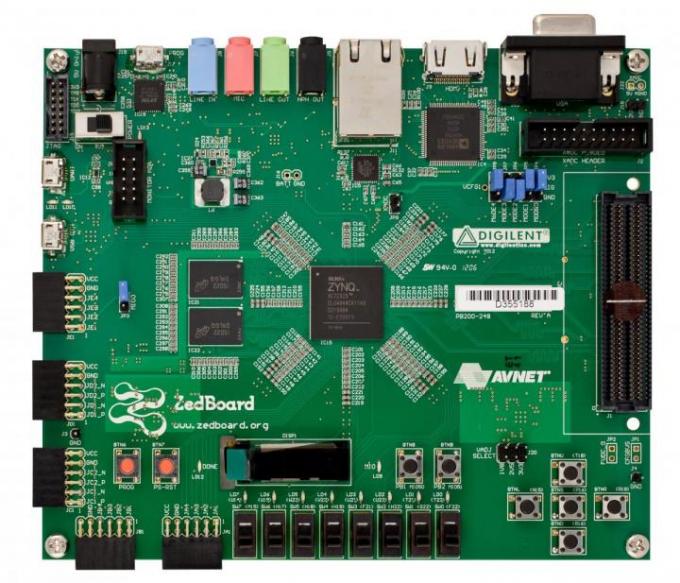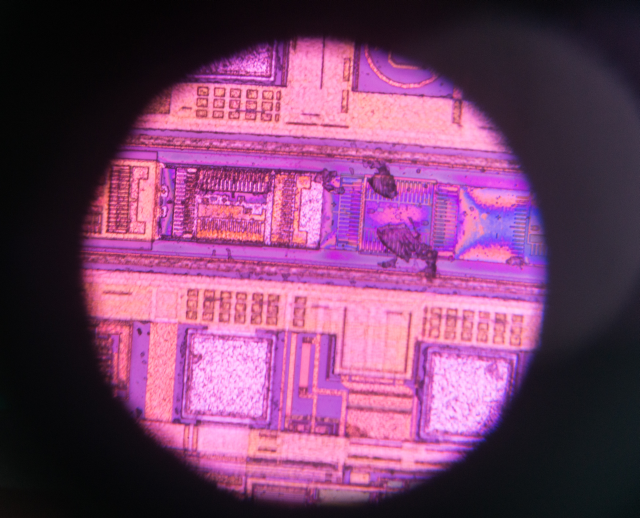The ICT offers the following courses in the Master program “Embedded Systems”:
Pflichtmodul “Design hochintegrierter Schaltungen”:

The aim of these courses is mastering various methods and principles as a basis for digital circuit design. Topics of the lecture with exercises are modeling of digital circuits, VHDL, advanced logic minimization, physical implementation and wiring of logic gates, data path components, interconnect components, latches and flip-flops, design of synchronous circuits, synchronization, digital semiconductor memories, programmable logic and other topics of digital technology.
The lab exercise is divided into two parts, a guided part that deals with selected aspects of the design of digital ASICs, and a practical part where the knowledge gained before is to be applied.
Pflichtmodul “Embedded Systems Core”:
 The courses provide basic knowledge of Requirements Engineering, Systems Engineering, Software Engineering and Human-machine Interaction. In addition, the basics of designing an embedded system in a System-FPGA are taught.
The courses provide basic knowledge of Requirements Engineering, Systems Engineering, Software Engineering and Human-machine Interaction. In addition, the basics of designing an embedded system in a System-FPGA are taught.
The students practically apply the acquired knowledge and skills directly in the laboratory on an FPGA board.
- Software and Systems Engineering VO, 384.165
- Human-Machine Interaction VO, 384.160
- Embedded Systems in FPGAs VU, 384.154
Vertiefungspflichtmodul “Smart Grids”:
 For the energy transition, smart grids are of utmost technical and social relevance. As a critical infrastructure, the stability of the power grid must be maintained, despite the rapidly increasing number of decentralized, weather-dependent suppliers. “Smart” solutions are a prerequisite for integrating these decentralized producers into existing hierarchical energy systems.
For the energy transition, smart grids are of utmost technical and social relevance. As a critical infrastructure, the stability of the power grid must be maintained, despite the rapidly increasing number of decentralized, weather-dependent suppliers. “Smart” solutions are a prerequisite for integrating these decentralized producers into existing hierarchical energy systems.
The course presents physico-mathematical and computer-technological methods for dealing with the associated challenges (e.g., regarding storage, e-mobility, architectures, smart metering, data protection) and the necessary communication infrastructures.
- Smart Grids VO, 384.146
Vertiefungspflichtmodul “Systems on Chips Engineering” and “Systems on Chips – Vertiefung”:
 The standard architectures for homogeneous and heterogeneous systems on chip, as well as the SoC infrastructure (e.g., clock network, power management, security management, etc.) are covered.
The standard architectures for homogeneous and heterogeneous systems on chip, as well as the SoC infrastructure (e.g., clock network, power management, security management, etc.) are covered.
In the advanced course, there is a SoC project applying knowledge of designing, modeling, analyzing, verifying and implementing a complete SoC. Through the use of industrial tools, the students are introduced to the industrial state of the art.
- SoC Architecture and DesignVU, 384.156
- SoC Design Laboratory LU, 384.157
- SoC Design Seminar SE, 384.159
- SoC, Advanced Course PR, 384.162
Vertiefungspflichtmodul “Software Systems Engineering”:
The aim of this advanced lecture with exercises is to give a comprehensive overview of requirements engineering and, in particular, testing in practice. Test methods and test management are covered throughout the software lifecycle. Students get the knowledge they need to design tests themselves and to make decisions when buying test tools. They are qualified to evaluate and improve test processes and to apply the test-relevant chapters of the relevant standards. Each section of the course is illustrated with examples from industrial practice.
As part of the seminar, a given task in connection with user interfaces will be worked on and briefly documented.
